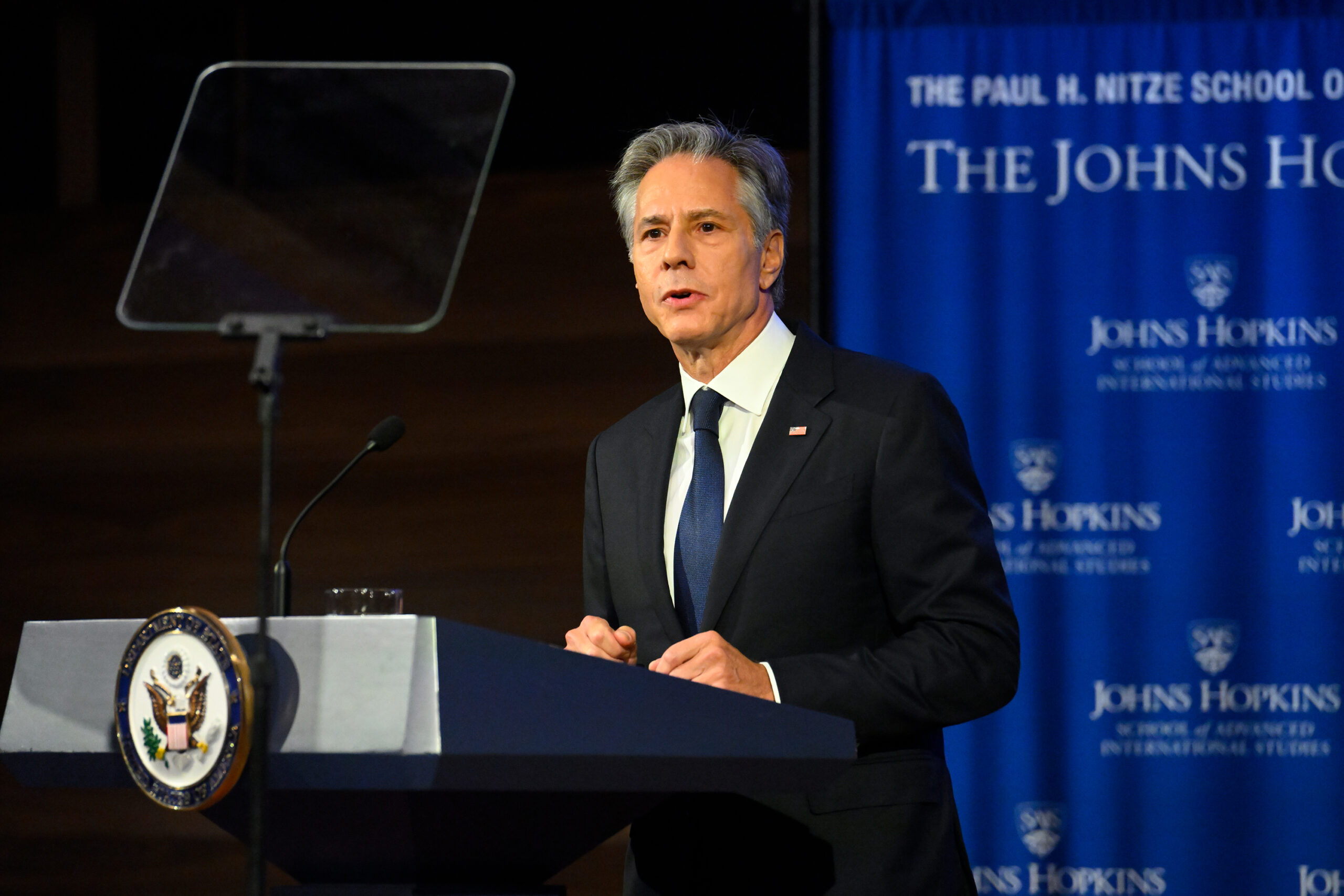Antony Blinken: The Post-Cold-War Era is Over
Secretary of State, in address at the Johns Hopkins School of Advanced International Studies, says we are living in a new diplomatic age

Key Takeaways
- The world order has been fundamentally transformed in recent years.
- The U.S. is embracing “diplomatic variable geometry”—bringing together diverse coalitions to solve discrete problems.
- Success will rely on collaborating with new partners and untraditional allies.
The world order that has stood largely unchanged since World War II has been transformed by the rise of autocratic leaders, the growing power of international crime syndicates, and the COVID-19 pandemic, U.S. Secretary of State Antony Blinken said at a recent address at Johns Hopkins School of Advanced International Studies (SAIS) in Washington, D.C.
“Any single one of these developments would have posed a serious challenge to the post-Cold War order,” Blinken said. “Together, they’ve upended it.”
“So we find ourselves at what President Biden calls an inflection point,” he added. “One era is ending, a new one is beginning, and the decisions that we make now will shape the future for decades to come.”
The United States is responding to this new era with what Blinken calls “diplomatic variable geometry,” a strategy focused on building diverse coalitions of countries, local governments, nonprofits, the private sector and academia that collaborate to solve a specific problem, such as providing aid to displaced Ukrainians.
Critically, this approach has led the U.S. to work with untraditional allies.
“On certain priorities, if we go it alone, or only with our democratic friends, we will come up short. Many issues demand a broader set of potential partners, with the added benefit of building stronger relationships with more countries,” Blinken said to a full auditorium. “So we’re determined to work with any country—including those with whom we disagree on important issues—so long as they want to deliver for their citizens, contribute to solving shared challenges, and uphold the international norms that we built together.”
Blinken pointed to climate change, energy, and the global food crisis as examples of problems broad coalitions will work to address, as well as emerging issues such as the rise of artificial intelligence and synthetic drugs.
Nora Bensahel, a visiting professor at SAIS, said the variable geometry strategy that Blinken outlined is a departure from the black-and-white mentality that defined the Cold War.
“During the Cold War, it was the West versus the East. It was clear, simple and defined. The world just doesn’t work that way anymore,” Bensahel said. “You have to be more flexible and adaptable in international diplomacy.”